US-China officials discuss climate change in Beijing, Pyongyang warns Washington to stop provocations... are some notable international news in the past 24 hours.
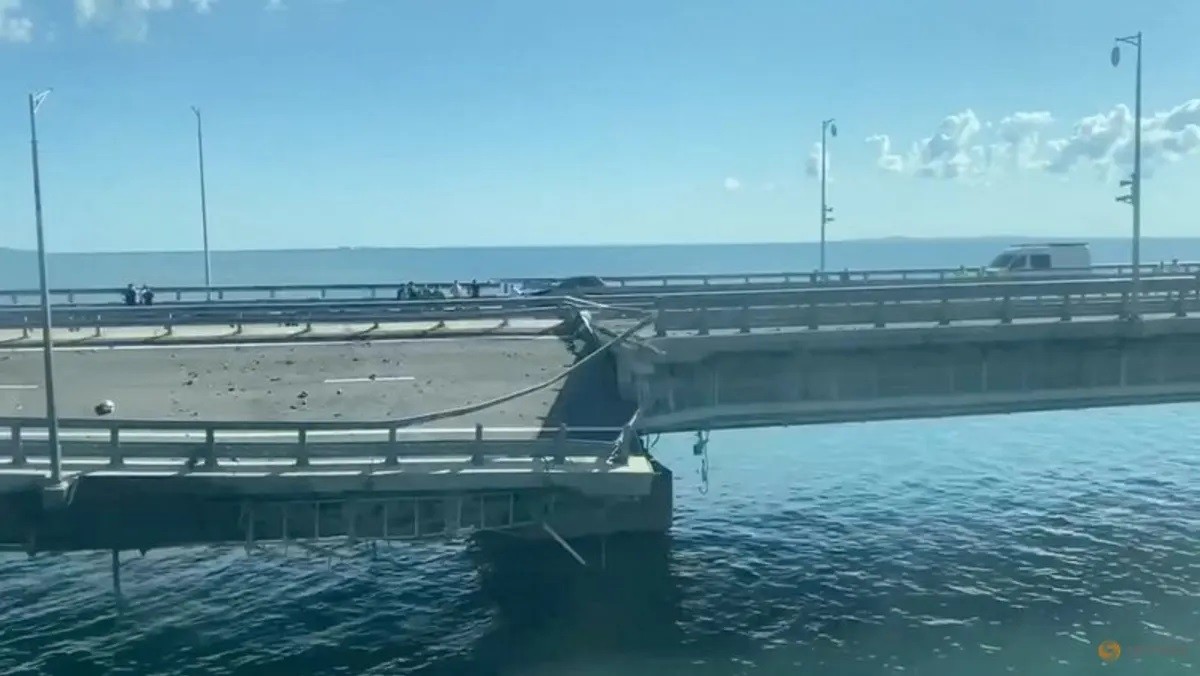 |
| Footage of the damaged bridge connecting Crimea and Krasnodar (Russia) after the attack on July 17. (Source: Crimea24/Krasnodar) |
The World & Vietnam Newspaper highlights some of the day's international news highlights.
* Crimea bridge attacked: Russia names culprit, Ukraine implicitly admits? On the night of July 17 (local time), an explosion occurred at the Crimea bridge connecting the peninsula of the same name with Russia's Krasnodar region, killing two people and injuring another.
Immediately after the incident, traffic on the bridge was temporarily interrupted, before resuming shortly afterwards. The Crimea 24 Telegram channel wrote: “Railway traffic on the Crimean Bridge has resumed.” Accordingly, the Simferopol-Moscow train, which stopped on the bridge for five hours due to the emergency, headed towards Krasnodar.
The head of the Crimean parliament appointed by Russia said that Ukrainian forces were behind the incident, RIA news agency (Russia) quoted the head of the Crimean parliament as saying that the railway section of the bridge was not destroyed.
On the same day, Kremlin spokesman Dmitry Peskov said that Russian President Vladimir Putin had been informed about the incident. He accused Kiev of being behind the incident and said Moscow would prevent any similar attacks. Speaking on the same day, Russian Foreign Ministry spokeswoman Maria Zakharova commented: "There are all signs of an international organized criminal group. The decisions were made by the Ukrainian authorities and military with the direct participation of intelligence agencies and American and British politicians."
On the same day, the Russian Anti-Terrorism Committee determined that Ukraine had used surface drones to attack the bridge. Accordingly, Ukrainian “agents” carried out the attack and Russia is conducting a criminal investigation into the incident.
In another development, the RBC website (Ukraine) quoted a source in the Security Service of Ukraine (SBU) as saying that the attack on the Crimean bridge in the early morning of July 17 was a special operation by the SBU and the Ukrainian Navy. According to this website, Kiev forces used unmanned boats to damage the bridge.
Similarly, Ukraine’s Suspilne and Pravda Ukraine have given some details about the operation, which they say involved the SBU and the country’s navy. However, a spokesman for the Ukrainian navy denied the reports, urging the media to wait for official statements. (Reuters/TASS)
* South Korea outlines 'formula for managing' relations with Russia : On July 17, speaking on SBS (South Korea), Deputy Foreign Minister Chang Ho Jin downplayed the impact of President Yoon Suk Yeol's surprise visit to Kiev on relations with Moscow: "(South Korea and Russia have) a formula for managing relations after the conflict broke out in Ukraine. Both countries tacitly understand that there is a certain limit in bilateral relations when such a situation occurs. Therefore, the president's visit will not significantly worsen (relations with Russia)."
Vice Foreign Minister Chang Ho Jin, who previously served as South Korean ambassador to Russia, believes that Moscow will only “take this trip seriously” if Seoul announces it will provide lethal aid to the Kiev government. Foreign Ministry spokesman Jeon Ha Kyu also affirmed: “The South Korean government maintains its stance of not sending lethal weapons (to Ukraine).”
Earlier, during a surprise visit to Kiev and talks with his host counterpart Volodymyr Zelensky on July 15, South Korean President Yoon Suk Yeol agreed to provide security, humanitarian and reconstruction aid under the “Ukrainian Peace and Solidarity Initiative”. However, he still refused the offer to provide lethal weapons. (Yonhap)
* Ukraine lost 1/3 of US armored combat vehicles? On July 15, Insider (USA) referred to the military analysis portal Oryx (Netherlands) saying: "It has now been confirmed with the naked eye that 34 Bradley (infantry fighting vehicles) have been abandoned, damaged or destroyed... This means that nearly 1/3 of Bradleys may have been lost or destroyed."
Earlier, the New York Times (USA) quoted an unnamed senior US official as saying: "The fierce resistance has affected Ukraine's weapons. In March, the US pledged to transfer 113 Bradley vehicles. According to this official, at least 17 of them, more than 15%, were damaged or destroyed after the clash." (Sputnik)
| RELATED NEWS | |
| Russia 'neutralizes' many Western weapons, will suicide UAVs become more and more intelligent? | |
* US-China envoys work to revive climate diplomacy : US climate envoy John Kerry arrived at the Beijing Hotel on July 17 for talks with his Chinese counterpart, Jie Zhenhua, to restore trust after talks stalled last year. Speaking at the event, Jie said the two climate envoys could play a role in improving US-China relations.
For his part, US Special Envoy John Kerry affirmed that “China and the US need to make real progress” within four months before the 28th Summit of the Parties to the United Nations Framework Convention on Climate Change (COP28) in Dubai, United Arab Emirates (UAE) next November.
At the same time, he urged China to work with the United States to cut methane emissions and reduce the climate impact of coal-fired power. “In the next three days, we hope to begin some major campaigns that will send a signal to the world about the seriousness of China and the United States in addressing the common risks, threats, and challenges facing all of humanity that are man-made,” the senior US official noted.
The meetings are scheduled to continue until July 19. Although there is no formal agenda, discussions are likely to focus on reducing methane and other non-CO2 emissions and preparing for COP28. (Reuters)
| RELATED NEWS | |
| America 'opens fire' in technology war, China 'counterattacks' with rare 'card' | |
Southeast Asia
* Cambodia: Prime Minister calls on people to vote: On July 16, sharing on Telegram channel and other social media platforms, Prime Minister Hun Sen said that after 16 days of election campaigning, the participating parties have all carried out activities in an exciting atmosphere. Currently, the country's political parties are calling for more votes of support from the people in the final days of the election campaign (from July 1-21).
The election is scheduled to take place on July 23 at 23,789 polling stations in 25 constituencies in the capital and provincial administrative units nationwide. More than 9.7 million voters will cast their ballots to elect 125 members of the 7th National Assembly of Cambodia. Of these, 17 political parties will compete with the ruling Cambodian People's Party (CPP).
According to the National Election Committee of Cambodia (NEC), the election campaign has so far been smooth, ensuring security and order and without violence. (Vietnam News Agency)
| RELATED NEWS | |
| China - Cambodia's largest rice consumer market | |
Northeast Asia
* China protests Taiwan leader's transit in the US : On July 17, China sent a diplomatic note of protest to the US about Taiwan leader Lai Ching-te's plan to transit in the US next month. The country's Foreign Ministry spokeswoman, Ms. Mao Ning, stated: "China opposes any form of complicity and support for Taiwan independence forces."
Earlier, senior Taiwanese diplomat Yu Tailei said that Taiwan's Vice President Lai Ching-te would transit in the United States on his trip to and from Paraguay to attend the inauguration of Paraguayan President Santiago Pena. (Reuters)
* North Korea warns the US to stop provocations: On July 17, responding to US National Security Advisor Jake Sullivan's comment that North Korea would continue to test intercontinental ballistic missiles (ICBMs), KCNA (North Korea) quoted Kim Yo Jong, sister of leader Kim Jong Un, as emphasizing: "The US should stop taking actions that could endanger their security by provoking us."
Kim also rejected the US call for unconditional talks, saying Washington was wrong if it believed North Korea’s nuclear disarmament was possible. “The US is delusional if it believes it can halt our progress and achieve irreversible denuclearization by suspending joint military exercises, suspending deployment of strategic assets or easing sanctions,” the senior official said.
North Korea earlier launched an ICBM off its east coast. Pyongyang has also accused Pentagon spy planes of flying over its exclusive economic zone. It also criticized the recent visit of a US nuclear-powered cruise missile submarine to South Korea and vowed to take countermeasures. (KCNA/Reuters)
| RELATED NEWS | |
| Not long after North Korea's missile launch, the US-Japan-South Korea held joint military exercises. | |
Europe
* The Black Sea grain deal “collapsed”, many countries spoke out simultaneously: On July 17, RIA quoted Russian Foreign Ministry spokeswoman Maria Zakharova as saying that Russia had officially informed Turkey, Ukraine and the United Nations that Moscow opposed extending the Black Sea grain export agreement:
“The grain deal is over. As soon as Russia’s part (of the deals) is implemented, the Russian side will immediately return to the grain deal.”
Earlier, on July 15, Russian President Vladimir Putin said that the obligations to remove obstacles to the country's food and fertilizer exports under the Black Sea Grain Initiative had not been fulfilled. The parties also failed to implement the main goal of the agreement, which is to provide grain to countries in need.
For her part, speaking at a regular press conference the same day, German Government spokeswoman Christiane Hoffmann said: “We continue to call on Russia to allow an extension of the grain agreement.” The German official also stressed that the agreement is important for global food security, and called for: “Conflicts should not be waged behind the backs of the poorest people on this planet.”
Meanwhile, Chinese Foreign Ministry spokesperson Mao Ning stressed: “China hopes that the package of agreements on grain transportation through the Black Sea will continue to be implemented in a balanced, comprehensive and effective manner.” According to her, the Asian power is also willing to strengthen cooperation with all parties in the field of food security and contribute to the establishment of international consensus on this issue.
Meanwhile, on July 16, in an interview with CBS (USA) regarding the possibility of Russia not extending the grain agreement, US National Security Advisor Jake Sullivan commented: “I can’t predict what (President) Vladimir Putin will do. It’s possible that Russia will withdraw from the Agreement, or it may continue (to participate). If they withdraw, the rest of the world will look at that and say that Russia has turned its back on ensuring that the Southern Hemisphere, Africa, Latin America and Asia can receive food at affordable prices. In my opinion, in the future, this will cost Russia a lot of diplomatic money.”
According to the latest data from the Joint Coordination Center in Istanbul, some 33 million tonnes of agricultural products have been exported under the grain deal. The center's summary also shows that low-income and lower-middle-income countries received only 10 percent of the corn and 40 percent of the wheat shipped under the grain deal. (AFP/CBS/Reuters/Sputnik)
* Poland may close Russian diplomatic facility : On July 17, Polish radio station RMF FM quoted the head of the Polish President's Office for International Policy, Marcin Przydacz, as saying that Poland could apply the "principle of reciprocity" after Russia announced it would close a Polish consulate on August 31. He stated: "Poland reserves the possibility of taking similar steps."
The official’s comments raised the possibility of a tit-for-tat response from both Poland and Russia, which could add further pressure to already strained relations between the two countries. However, Przydacz said there were no immediate plans to recall the Polish ambassador to Moscow, stressing that such decisions were always discussed with political partners.
Earlier, on July 14, Russia ordered the closure of the Polish consulate in the west of the country, due to Warsaw's "unfriendly, anti-Russian actions". (PAP)
| RELATED NEWS | |
| Russia officially decides direction of grain deal, has 'spread the news' to Türkiye, Ukraine and UN | |
America
* Spain, Brazil hopeful for EU-Mercosur deal in 2023 : Spanish Prime Minister Pedro Sanchez on July 17 expressed optimism about the chances of signing a trade deal between the European Union (EU) and South America's Mercosur trade bloc in the second half of 2023. He also expected two separate deals between the EU and Chile and Mexico to be ratified by the end of 2023.
For his part, Brazilian President Luiz Inacio Lula Da Silva also hopes that the EU-Mercosur deal will be signed this year. President Lula said: "A balanced agreement between Mercosur and the EU that we plan to conclude this year will open new horizons... We want an agreement that maintains the capacity of the parties and meets the challenges of today and tomorrow." (Reuters)
| RELATED NEWS | |
| Brazil and Italy discuss 'common global challenge' | |
Middle East-Africa
* EU leaves open $1 billion loan to Tunisia : An EU official said on July 17 that the bloc could still lend Tunisia 900 million euros ($1 billion), but further negotiations would take place in the third quarter and depend on the North African country's agreement with the International Monetary Fund (IMF). "Macroeconomic support is still on the table, but it needs to meet IMF conditions. Tunisia says it may not need an IMF deal. We will see if this is true in the third quarter," the official said.
Tunisia's $1.9 billion loan negotiations with the IMF have been stalled since October after President Kais Saied rejected terms that included cuts to subsidies and cuts to public wages. Tunisia is on the brink of a major debt crisis and shortages of basic goods. Most of the debt is domestic, but some foreign loans are due later this year. Credit rating agencies have warned that Tunisia could default.
Earlier, on July 16, European Commission (EC) President Ursula von der Leyen said the bloc would allocate 100 million euros (112.36 million USD) to Tunisia as part of a “strategic partnership” agreement to combat human trafficking and promote investment and trade. (VNA)
Source




![[Photo] General Secretary To Lam meets and expresses gratitude to Vietnam's Belarusian friends](https://vphoto.vietnam.vn/thumb/1200x675/vietnam/resource/IMAGE/2025/5/11/c515ee2054c54a87aa8a7cb520f2fa6e)
![[Photo] General Secretary To Lam arrives in Minsk, begins state visit to Belarus](https://vphoto.vietnam.vn/thumb/1200x675/vietnam/resource/IMAGE/2025/5/11/76602f587468437f8b5b7104495f444d)






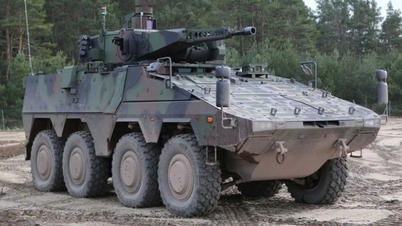



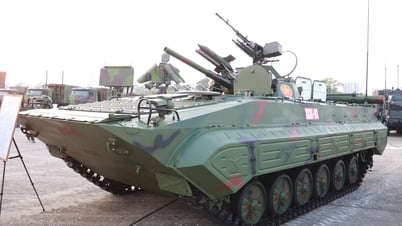


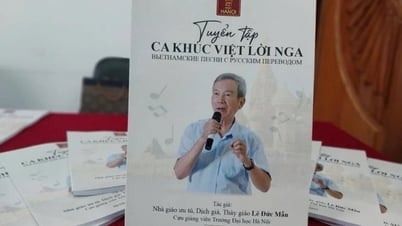
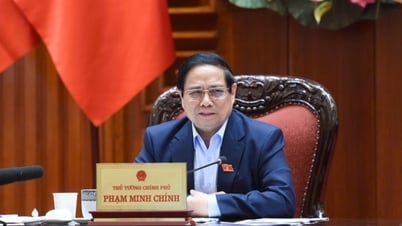

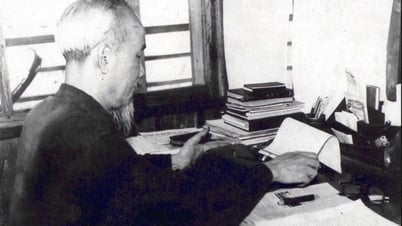





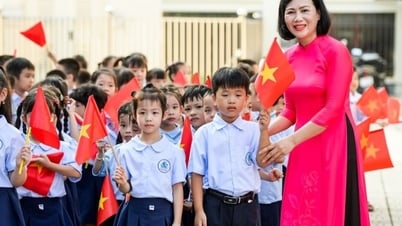


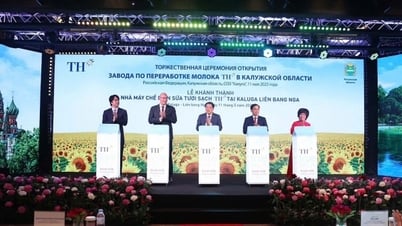



![[Photo] General Secretary To Lam concludes visit to Russia, departs for Belarus](https://vphoto.vietnam.vn/thumb/1200x675/vietnam/resource/IMAGE/2025/5/11/0acf1081a95e4b1d9886c67fdafd95ed)



























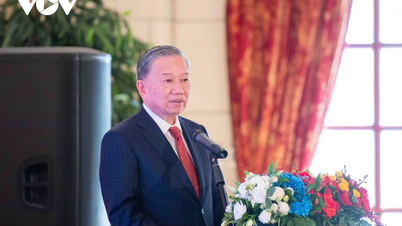

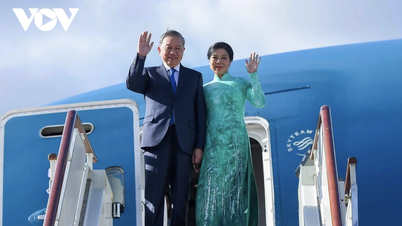
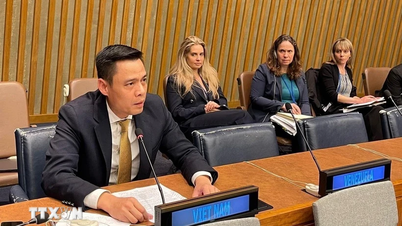













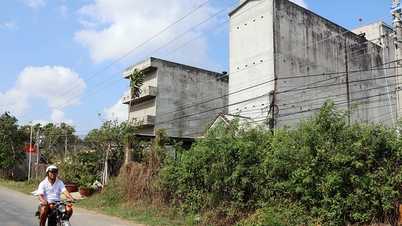







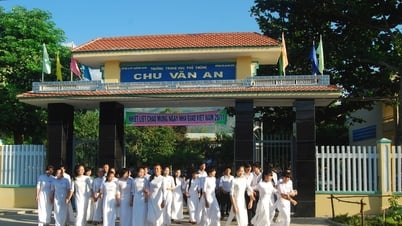













Comment (0)